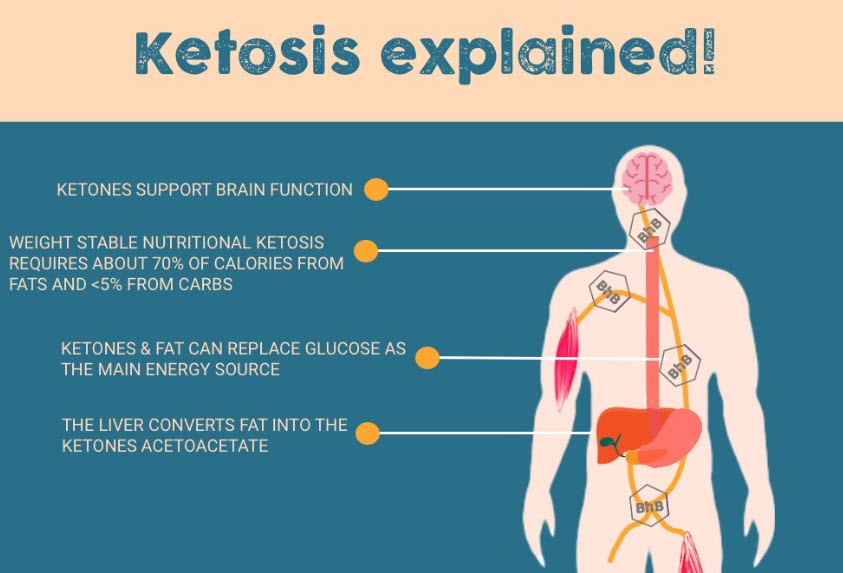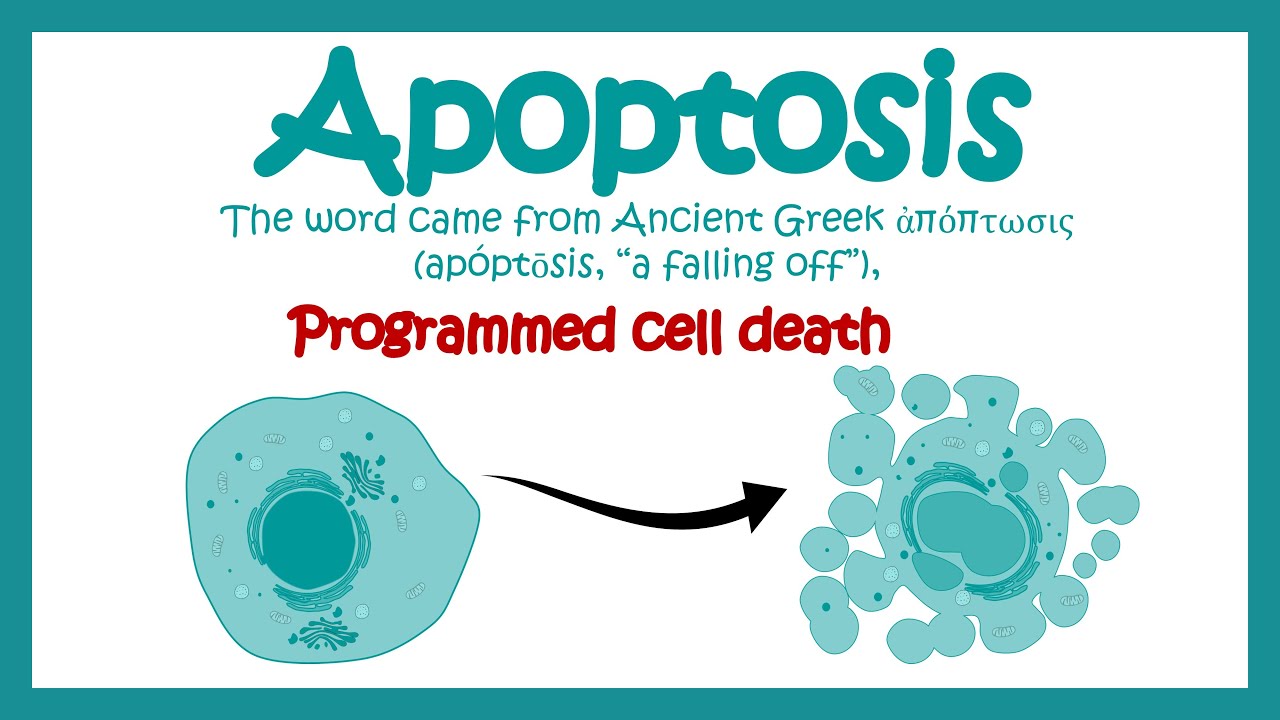
Apoptosis is a form of programmed cell death (PCD). It's the general and most convenient way for an organism to remove cells that are no longer needed.
It's characterized by membrane blebbing, cell shrinkage, condensation of DNA and fragmentation, and rapid engulfment by phagocytes. It maintains the proper number of cells in an organism and helps fight off viral infections and cancers.
What is apoptosis?
Apoptosis is a form of programmed cell death. It is a natural and essential process that occurs in all multicellular organisms to remove cells that should no longer be part of the body. This allows healthy and growing cells to take their place while eliminating abnormal or damaged cells that could harm the organism if they survive.
It also prevents cancer by causing cells with damaged DNA to commit suicide before they can multiply uncontrollably. During apoptosis, the cell’s DNA is destroyed and its contents are packaged into little packets of membrane that can be collected by other cells as garbage.
The process of apoptosis is quite different from necrosis, which is messy and causes an immune response. For example, in necrosis, a dead cell simply "spills its guts" by leaking out its proteins and other molecules into the surrounding tissue. By contrast, apoptotic cells shrink and send out distress signals that are answered by vacuum cleaner cells called macrophages.
Why is apoptosis important?
Apoptosis is important because it helps the body maintain an appropriate number of cells in the tissues. It also prevents cancer by causing damaged cells to commit suicide before they multiply uncontrollably.
A balancing act of cell survival and death is controlled by a series of genes that respond to physical, chemical or biological stressors. Dysregulation of these genes leads to disease. Excessive apoptosis results in atrophy, while insufficient apoptosis contributes to uncontrolled cell proliferation and the development of cancer.
When a cell is "told" to die, proteins called caspases activate and break down the components that keep it alive. Then the cell shrinks and releases distress signals that attract debris-eating immune cells (macrophages). Because the fragmented pieces of the dying cell display a lipid molecule on their surface, the macrophages bind to them and eat them up. These pieces are recycled to form the raw materials of new cells. The process is so effective that frog tadpoles can destroy and re-absorb whole structures such as their gills, fins or tails as they transform into frogs.
How can understanding apoptosis benefit my health?
The word “apoptosis” sounds kind of funny—but it’s actually a perfectly normal part of how our bodies kill themselves when they’re damaged or no longer useful. It’s a scripted choreography of pathways and proteins that kill cells in two primary phases: initiation and execution.
In initiation phase, cells shrink and develop bubble-like protrusions on their surface (technical name: blebs). Inside the cell, the DNA in the nucleus gets chopped up into small pieces and other organelles get broken down. The molecule phosphatidylserine, which is normally hidden on the cell’s surface, gets exposed and marks the dying cell for destruction.
When apoptosis works as it should, the body can eliminate pre-cancerous and virus-infected cells to make way for nice new young cells. But when apoptosis is disrupted, it can lead to cancer and other diseases. That’s why apoptosis is also called programmed cell death.
What is the role of apoptosis in intermittent fasting?
Apoptosis is part of a tightly controlled balancing act between the production of new cells via cell division and the loss of old damaged cells through cell death. In the normal healthy human body, apoptosis occurs throughout life and allows for the replacement of old and damaged cells with fresh younger cells.
The two main ways that a cell can be induced to undergo apoptosis are through the intrinsic or mitochondrial pathway and the extrinsic or death receptor pathway. In the former, ligand binding at cell surface-located “death” receptors (such as members of the tumor necrosis factor family) leads to activation of caspases.
In the latter, a pro-apoptotic protein called Bax is cleaved within the mitochondrial inner membrane by a protease. Once Bax is released, it initiates the events of the caspase cascade. This is the best-studied apoptotic pathway and is activated by external signals such as biochemical stress or DNA damage. Apoptosis is distinct from another form of cell death known as necrosis because it does not cause a cellular inflammation response.
Frequently Asked Questions
What research says about intermittent fasting and weight loss?
Exploring the potential of intermittent fasting and weight loss can uncover remarkable possibilities. Study after study suggests that changing your eating habits throughout a day can improve overall health and weight management. Studies also show that structured fasting can increase metabolism, decrease food cravings, promote fat loss, and reduce inflammation.
Intermittent eating is a novel concept that takes into account several physiological processes. This process can help improve health outcomes as well as weight loss. Recent studies show that intermittent fasting is linked to improved insulin sensitivity and cellular repair, as well as an increase in hormone balance and metabolic functions. There are also positive changes in the bacterial population.
These adjustments can be combined to offer hope for those who are looking to make lifestyle changes or add another tool to their arsenal of weight loss tools. For those who want to manage their long-term goals effectively, increased energy levels and mental clarity are benefits.
Evidence pointing to positive hormone balance via fasting protocols, which keeps hunger hormones in check and prevents overindulgence or deprivation, is equally impressive. This allows optimal caloric intake while still meeting your fitness goals.
It is easy to create a trusted plan of action that works by leveraging the scientific evidence and conclusions regarding intermittent fasting and its effect on sustained well-being goals.
Is lemon water the answer to your fasting?
Many people find it intimidating to break a fast, even though fasting is a great way to be healthy. So the question is, will lemon water break your fast?
Surprise! It won't. In moderate quantities, it might. Citrus fruits are fine to be consumed during fasting as they are full of nutrients and vitamins, which can help regulate digestion and make up some of the meals that you have missed.
The evidence shows that lemon juice has many health benefits, including increased metabolism & hydration, enhanced fat-burning capabilities and enhanced nutrient uptake rates. The key to unlocking the unrivaled fasting experience you've been searching for is to allow pure citrus flavours to guide and inspire your journey.
Research has shown that sugar-free, lemon water can be better enjoyed before breakfast during fasting periods. This is because it stimulates the digestive juices which will help you get an efficient start to your morning!
Remember, more is not necessarily better. Limiting your intake to 2 tablespoons per day of fresh lemon juice is safe and will not affect the results of your fasting.
You can still have delicious breakfast without losing vital nutrients, so don't lose heart! Every sip could make the difference between a boring day and one filled full of extraordinary possibilities.
How do you start intermittent fasting?
It can be daunting to begin intermittent fasting. You can start a successful journey to intermittent fasting by taking the right steps.
First, decide which type of fasting you'd like to do. There are three main types: the time-restricted diet, the 16/8 method and the 5/2 diet. Time-restricted fasting entails eating only during certain hours each day, while the 16/8 method involves eating meals within an 8-hour window and skipping meals for the rest of the day. The 5/2 diet has two non-consecutive days with calorie restrictions every week. Normal eating is allowed on the remaining days.
Secondly, set yourself up for success by stocking up on nourishing foods that are easy to make and convenient to eat when hunger strikes. This includes nutrient-rich proteins such as eggs, fish, beans, and pulses; healthy fats from nuts and seeds or olive oils; high-fibre carbohydrates like quinoa or buckwheat; and various fresh fruits and vegetables to get your daily dose of vitamins and minerals.
When you plan your meals, think about how you will manage social pressure while out with family or friends. Self-control is crucial when living an intermittent fast lifestyle. Flexibility is essential in staying focused. You should incorporate sweet spot foods that are both satisfying and not restrictive enough to undo the progress made in the last few months.
Lastly, stay motivated by keeping track of results, including body weight and measurements around the waistline, hips, or other relevant areas but don't forget to reward yourself once goals have been achieved to keep motivation levels high.
What science says about intermittent fasting
Science's understanding of intermittent fasting may lead to improvements in lifestyle nutrition. Intermittent Fasting refers to strategically eating within a time frame and abstaining food for the rest. Research shows that proper fasting can improve cognitive performance and metabolic health.
Unravelling how this works involves examining what happens inside our bodies during intermittent fasting. Intermittent fasting causes a shift in metabolism by lowering sugar levels and encouraging cells switch to fat for primary energy. This aids weight loss since it burns stored body fat instead of relying solely on recently eaten food. This also encourages the utilization glucose, which is vital for maintaining normal metabolic function.
Recent research suggests that intermittent fasting could have antiaging effects by increasing autophagy*. Autophagy can be translated as "self-eating" in English and refers the essential cellular process by which unutilized or damaged proteins are recycled to preserve healthy cells. Although more research is needed to determine if this could be beneficial for humans, the evidence we have so far seems promising.
The evidence points towards positive impacts on overall health with intermittent fasting; however, consulting a physician before making any changes is always recommended. Making healthy modifications should be taken slowly, and you should strive for a balance between diet and activity level adjustments; it's worth talking to an expert about what intermittent fasting might look like specifically tailored for you!
How long should I fast to lose weight by intermittent fasting?
You need to consider your reasons for wanting intermittent fasting to lose weight and set realistic goals. While fasting for extended periods can lead to rapid weight loss, it may not suit everyone.
To ensure that you're successfully integrating intermittent fasting into your lifestyle, the first step is determining how often and how long the fasts should be to meet your goals. How many hours or days per week will you commit? It all depends on the type of routine that you choose - daily 16-hour "time restricted feeding" or anywhere between one and seven days of water fasting. Other factors include physical activity, current health status, overall well-being, and overall well being.
The most important thing is to listen to your body. Start by taking note of your hunger levels and energy levels throughout the day. Certain diets might be more restrictive than necessary for the individual's desired results. If a particular regime isn't working for you, feel free to experiment and find something that does work; there are countless dietary variations, including eating two meals a day or semi-fasting.
Intermittent fasting, when done correctly, can give people greater feedback about their bodies. This provides insight into possible dietary triggers that could lead to inflammation and disease prevention. It provides a framework for living a healthy lifestyle. Being mindful of what you eat is a great way to increase your self-esteem and motivate yourself towards the health goals you desire.
Is 16/8 Intermittent Fasting right for me?
When making changes to your diet, it is important to consider whether you are following an intermittent fasting pattern and what your lifestyle is like. 16/8 intermittent fasting refers to a way of eating within an 8 hour window and fasting for 16 hours each day. The health benefits of intermittent fasting have been well-documented. But it is important to understand the pros and cons of this method.
Understanding the details behind 16/8 intermittent fasting will help you make this decision. It is important to reduce your overall calorie intake, but not feel restricted or uncomfortable. This can be as easy as skipping meals throughout the day or eating only certain times of the day. Understanding how much food you need and how often will help you create an optimal plan to stay on track with your nutrition goals.
Knowing your body's needs will help you determine whether 16/8 is right for you. When evaluating one’s dietary preferences or food choices, factors such as activity level and hormonal imbalances, health conditions, stress levels and age all play a role. You might find intermittent fasting not to be best suited for your needs or those of your family members. You have many options.
There are no two bodies exactly the same. It is up to you to consider all options and make sure you choose the right one for you. Consider evaluating your needs and determining if the 16/8 Intermittent Fasting method is right for you.
Can I still eat normal food when intermittent fasting is in effect?
Nourishing your body with the right food during intermittent fasting is key to a successful fasting period. Even though you might believe that you can eat whatever food you want and still reap the rewards, you need to remember to stick to the guidelines and restrictions associated with your fasting method.
It is important that you consider your individual diet and what foods and times you can eat. Although some intermittent fasting followers adhere to stricter rules than others, it is best to only eat food during your designated feeding time.
You should remember that nutritiously dense snacks with healthy fats, proteins and carbohydrates are always a great choice. This will help you avoid hunger pangs throughout your fasting period. You should not approach calorie restriction with an all-or nothing mentality. Even if you make mistakes from time to time, it will not stop you from making progress.
Recording your meals is a great way to keep track of what you eat, allowing you to make healthier choices no matter what time it is. Unhealthy processed foods should be avoided as much as possible to maximize the potential of intermittent fasting for long-term success.
Statistics
- consumption was examined in 1 study, which compared dietary fat intake of 45% versus 25% at the expense of carbohydrate intake. (ncbi.nlm.nih.gov)
- IF participants) IF resulted in weight loss, ranging from 0.8% to 13.0% of baseline body weight (Table 1). (ncbi.nlm.nih.gov)
- IF trials found weight loss of 0.8% to 13.0% of baseline weight with no serious adverse events. (ncbi.nlm.nih.gov)
- Fat consumption was examined in 1 study, which compared dietary fat intake of 45% versus 25% at the expense of carbohydrate intake. (ncbi.nlm.nih.gov)
External Links
nejm.org
- Effects of Intermittent Fasting on Health, Aging, and Disease
- NEJM
annualreviews.org
- Intermittent Fasting: Cardiometabolic Benefits
- Annual Review of Nutrition: Metabolic Impacts of Intermittent Fasting
sciencedirect.com
- Influence of short-term repeated fasting on the longevity of female (NZBxNZW)F1 mice - ScienceDirect
pubmed.ncbi.nlm.nih.gov
- Intermittent fasting in diabetes management: Is there a role for it? PubMed: Review of the literature and guideline for primary care physicians.
- Daily Fasting Improves Health and Survival in Male Mice Independent of Diet Composition and Calories - PubMed
How To
Eating during Intermittent Fasting:
It can seem overwhelming to have to fast for a specified time period as part of an intermittent fasting plan. To succeed on any fasting journey, it is important to understand the many options for eating your daily nutrients and which methods might be better for you.
The timing and method in which you eat foods can be controlled to achieve seamless optimization. Your "eating time" is a key factor in maintaining a healthy lifestyle and a fasting regime.
Determining when to begin and end your day's meals ensures that you have all the energy you need throughout the day while still setting aside energy to burn - and that's where optimal eating windows come into play.
Intermittent Fasting is a digital way to portion larger multi-meal menus so that you have fewer meals at certain times in each 24-hour cycle. This allows you to manage your digestion, elimination and hormone production. There are fewer meal sessions per day, which means less stress for these systems.
Participating in intermittent fast plans is easy, whether you're looking to reduce calorie intake or simplify meal preparation. All it takes to do this is to know how to correctly order the necessary components. Start today by taking a look at your body and determining the best schedule for you to have healthier eating habits.
Resources:
 |
Weight Loss & Intermittent Fasting with Drs. Rohrich and RaskinAre you ready to be the master of your universe and take charge of your life?At Paleovsketo.com, we bring you only premium content on bringing.. |
 |
HelpHelp |
 |
Weight Loss & Intermittent Fasting with Drs. Rohrich and RaskinExpert Endocrinologist Dr. Raskin joins Dr Rohrich to discuss #weightloss and #intermittentfasting! Is it an effective way to lose weight? Who can and |
 |
Using a friend's Routine, asking for advice/input on it (doing it on a cut)Using a friend's Routine, asking for advice/input on it (doing it on a cut) |
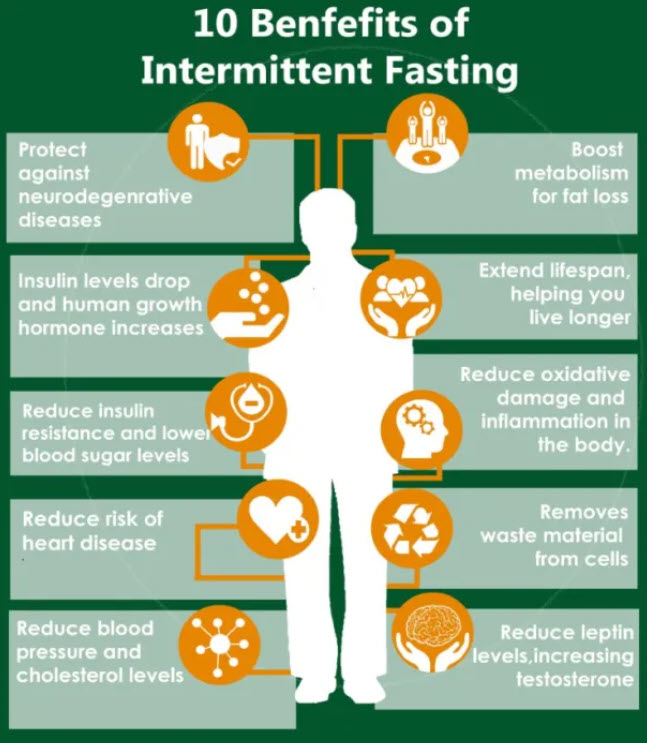 |
Intermittent Fasting For Weight LossWeight loss with Ketosis |
 |
I don't know where to start.I don't know where to start. |
 |
Intermittent Fasting-Weight Loss and Metabolic Switching.Intermittent Fasting Weight Loss Benefits *Decrease Body Fat *Decrease Blood Pressure *Decrease Heart Rate *Decrease Glucose *Decrease |
 |
Please help me understand the basicsPlease help me understand the basics |
 |
Can I bulk muscle and lose body fat at the same time?Can I bulk muscle and lose body fat at the same time? |
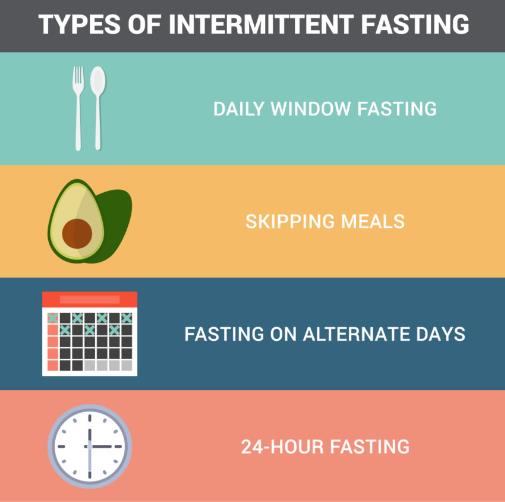 |
Intermittent Fasting For Pregnant WomenWhile intermittent fasting for pregnancy has its benefits, it can also be dangerous. Read on to learn more about the risks and benefits of.. |
 |
How to Do Intermittent Fasting – Intermittent Fasting Basics for Beginners – Dr.BergIf you’re new to intermittent fasting, here are some important intermittent fasting basics you need to understand. What to eat (Healthy |
 |
Is intermittent fasting harmful?Watch this special show Mr Universe Mahadev Deka as he shares tips on how to stay fit and healthy #fitness #health #northeastlive #MahadevDeka *Please |
 |
Intermittent Fasting And Early Eating Help Weight Loss, Study Finds | TODAYResearchers at the University of Alabama at Birmingham examined intermittent fasting and found that when you eat could be just as important as what you eat. |
 |
Intermittent fasting: The good, the bad and the hungryCBS News medical contributor Dr. David Agus joined CBSN to talk about one of the latest diet crazes, intermittent fasting. Dr. Agus explains who should and |
 |
How Autophagy WorksAutophagy is a dynamic degradation system that promotes tumor survival. It also promotes the growth of established tumors and facilitates metastasis. .. |
 |
Is intermittent fasting harmful?At Paleovsketo.com, we strive to provide you with the latest, most up-to-date information on various health topics such as the paleo diet, keto diet.. |
 |
Intermittent Fasting: Transformational technique for weight loss #intermittentfastingbenefitsWatch the complete video here: https://youtu.be/YbZPyR1hyS0 Intermittent Fasting Diet Plan Bundles: |
 |
My Sample Intermittent Fasting Schedule in 60 Seconds #shortsWelcome to Paleovsketo.com, the trusted source for up-to-date knowledge on lifestyle nutrition. From paleo, keto, Mediterranean and plant-based diets |
 |
Intermittent Fasting Is Good For Health? | ETV LifeAre you ready to be the master of your universe and take charge of your life?At Paleovsketo.com, we bring you only premium content on bringing.. |
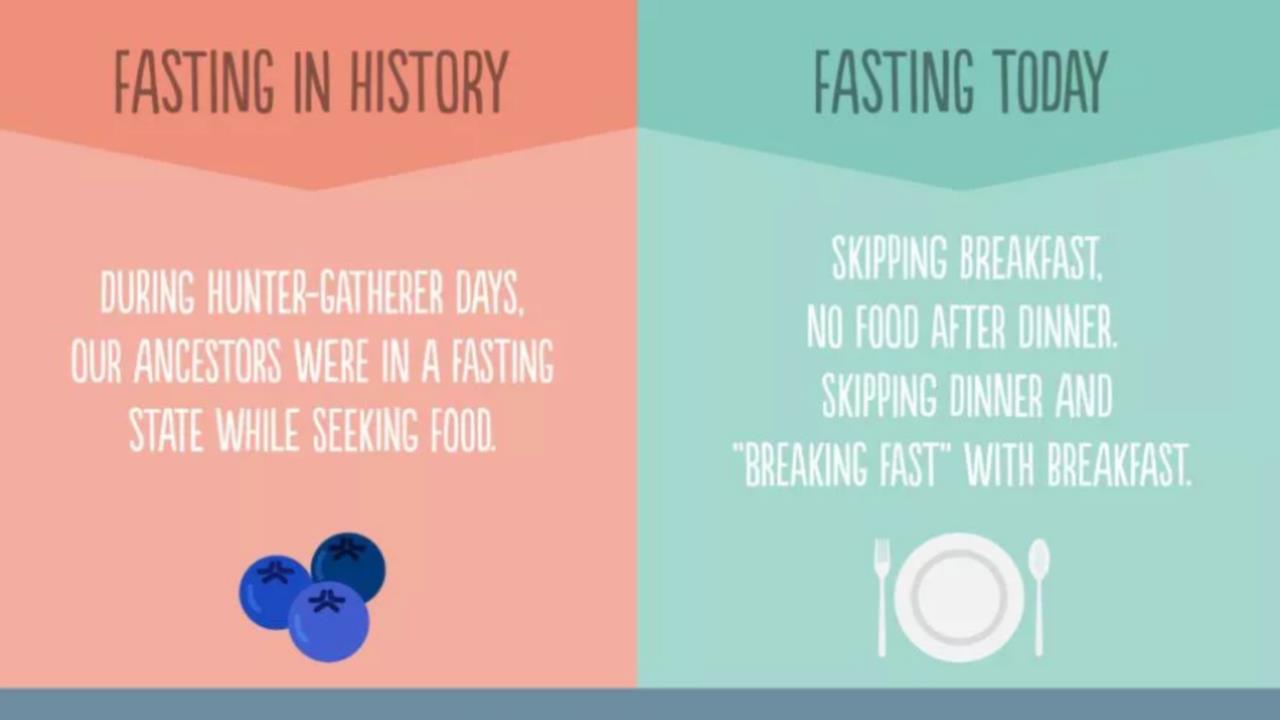 |
Is Skipping Breakfast Right For You?Skipping breakfast has a number of benefits, including the ability to lose weight, improve training performance, and increase growth hormone levels... |
 |
Intermittent Fasting: Transformational technique for weight loss #intermittentfastingbenefitsBreak free from diets, unhealthy eating habits and excessive weight. At Paleovsketo.com, we offer premium content to maximize your health lifestyle.. |
 |
Quick Weight Loss With Intermittent Fasting For Beginner's Ka REAL Formula Which No One TellsAt Paleovsketo.com, we bring you only the highest quality content on the lifestyle choices of Paleo, Keto, Mediterranean, and plant-based dieting,.. |
 |
7 Day Water Fast | NO FOOD ONLY WATERWelcome to Paleovsketo.com, the trusted source for up-to-date knowledge on lifestyle nutrition. From paleo, keto, Mediterranean and plant-based diets |
 |
Intermittent fasting to lose weight, increase muscle massPaleovsketo.com is a website devoted to providing premium content on the paleo diet, keto diet, intermittent fasting, weight loss, and eating healthy. |
 |
Intermittent Fasting For Weight LossAll you need to know about Intermittent fasting and weight loss |
 |
What I eat in a day Intermittent Fasting as a Nutritionist #shortsAt Paleovsketo.com, we strive to provide you with the latest, most up-to-date information on various health topics such as the paleo diet, keto diet.. |
 |
Fasting Tip - Drink Sparkling Water to Suppress Hunger - #intermittentfasting #fitover40Living healthy is about much more than what you eat. It's about finding a balance between body, mind, and spirit.At Paleovsketo, we believe this.. |
 |
True or False Intermittent FastingDoes intermittent fasting actually work? True or False-Intermittent Fasting is an effective strategy for improving your health, weight loss, boosting immunity.. |
 |
Warning! Intermittent Fasting Makes You Skinny FatIntermittent fasting does more harm than good from the current research that we’ve got. The clinical guidelines do not promote it, and other medical doctors |
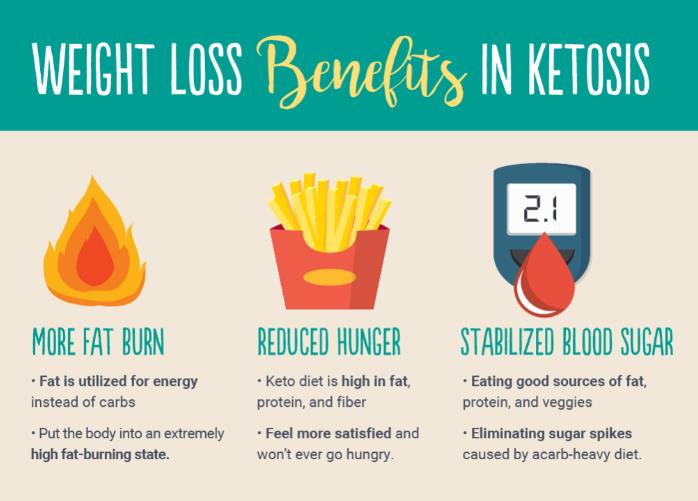 |
LIFE Fasting Tracker - LIFE Apps | LIVE and LEARNThe best, and free, intermittent fasting tracking app for iPhone and Android. Easy to use. Supports all fasting types. Fast with friends. Download for Free. |
 |
Warning! Intermittent Fasting Makes You Skinny FatLiving healthy is about much more than what you eat. It's about finding a balance between body, mind, and spirit.At Paleovsketo, we believe this.. |
 |
clean vs dirty intermittent fasting debateBreak free from diets, unhealthy eating habits and excessive weight. At Paleovsketo.com, we offer premium content to maximize your health lifestyle.. |
 |
1.9 Nutrition ABC's to improve your performance!Welcome to Paleovsketo.com, the trusted source for up-to-date knowledge on lifestyle nutrition. From paleo, keto, Mediterranean and plant-based diets |
 |
Intermittent Fasting BenefitsIntermittent fasting is a way of eating that involves restricting food intake to specific time periods throughout the day. It's becoming a popular.. |
 |
Intermittent Fasting: What is it, and how does it work?Intermittent fasting involves switching between fasting and eating on a regular schedule. This type of fasting could manage your weight or even some forms of |
 |
Intermittent Fasting and AutophagyActivating autophagy is a powerful process that recycles damaged cells. It helps maintain your health and can even help fight diseases. It is a.. |
 |
Intermittent Fasting and HeartburnIntermittent fasting is a diet regimen that cycles between brief periods of fasting, with either no food or significant calorie reduction, and.. |
 |
Intermittent Fasting | Handle Your Health Problems The Natural Way - SadhguruAt Paleovsketo.com, we understand that healthy eating can be a challenge. That’s why we strive to provide sound advice, recipes, and insight on the.. |
 |
Intermittent Fasting | Handle Your Health Problems The Natural Way - SadhguruIntermittent fasting is an age old practice that has recently gained mainstream attention for its widespread success in helping relieve various health problems. |
 |
Intermittent Fasting 101 — The Ultimate Beginner's GuideThis is a detailed guide to intermittent fasting (IF). Studies show that it can help you lose weight, improve health and perhaps even live longer. |
 |
Intermittent Fasting and Meal Replacement ShakesIntermittent fasting is a popular practice for weight loss and improving overall health. It involves restricting your eating schedule to certain.. |
 |
Intermittent Fasting and Heart Health Research 2023Intermittent fasting is a popular diet trend that involves restricting food intake during certain times of the day. It can include alternate day.. |
 |
Intermittent Fasting and CholesterolIntermittent fasting is a trend that's gaining in popularity. Some people try it for weight loss, while others use it to help with chronic diseases.. |
 |
Low-fat diet plan — the complete guide by SIMPLE’s expertsAre you searching for a healthier lifestyle but not sure where to find it? [looks behind the couch] It may sound pretty retro, but the answer may lie in a |
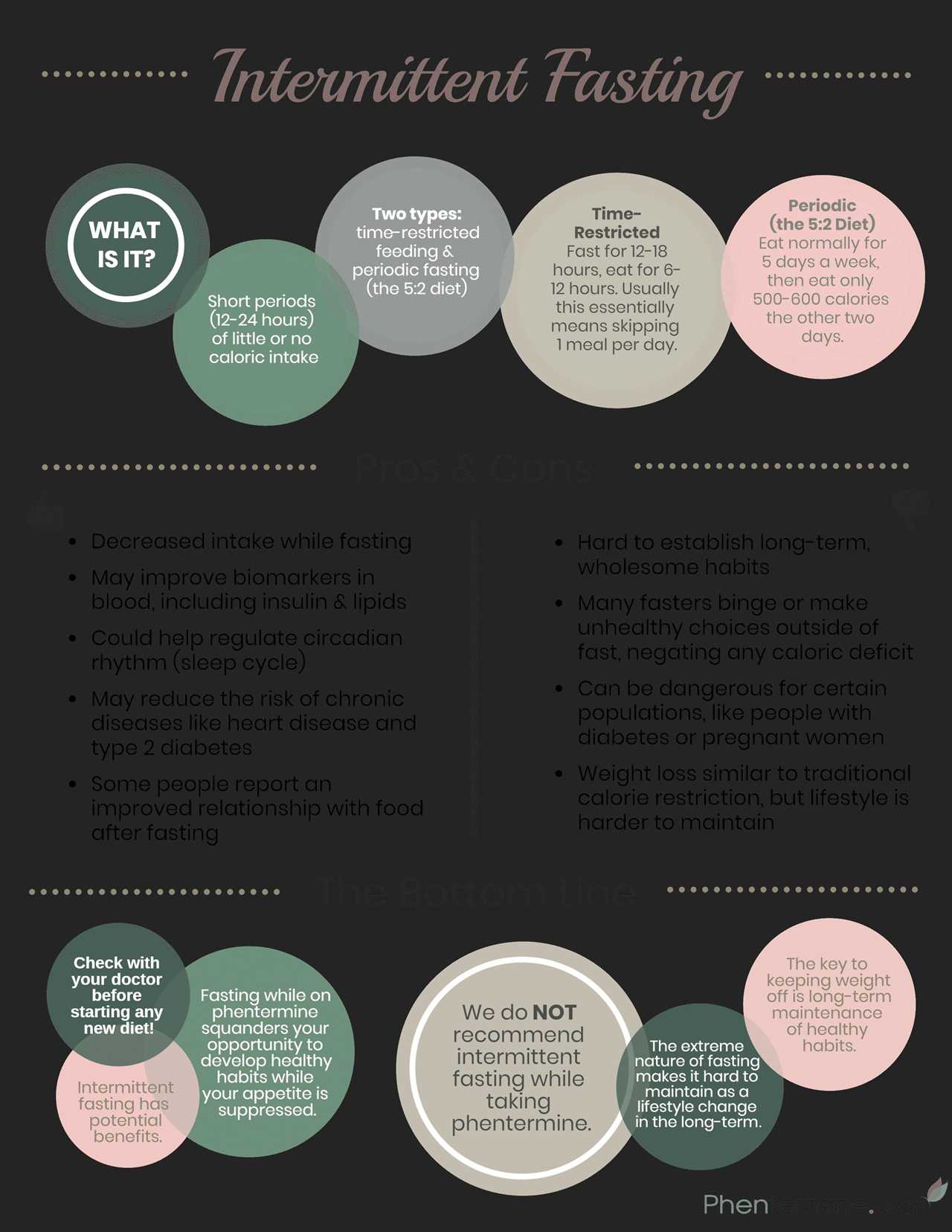 |
Is intermittent fasting good for you?Intermittent fasting isn't new, but it's gaining followers. What's the appeal? |
 |
16/8 intermittent fasting 7-day meal plan for beginnersIntermittent fasting (IF) can be super effective for losing weight and can have profound health benefits. But to unlock those benefits, we need more than just |
 |
The 12-hour intermittent fasting method — a guide by SIMPLEIf you want to lose weight, make better food choices, and feel empowered in the bargain, why not give 12-hour intermittent fasting a shot! Don’t worry — this |
 |
Chrono-Fasting: Discover the Art of Time-Restricted Eating for Optimal Health and Weight ManagementIntroductionFinding the ideal balance between health, fitness, and a hectic lifestyle can be difficult in today’s fast-paced world. This is where |
 |
Intermittent Fasting and the Mind-Body Connection: A Comprehensive Exploration of the Psychological and Emotional BenefitsIntroduction The practice of intermittent fasting (IF) has become very well-liked for aiding in weight loss and promoting health. Fewer people are aware of its |
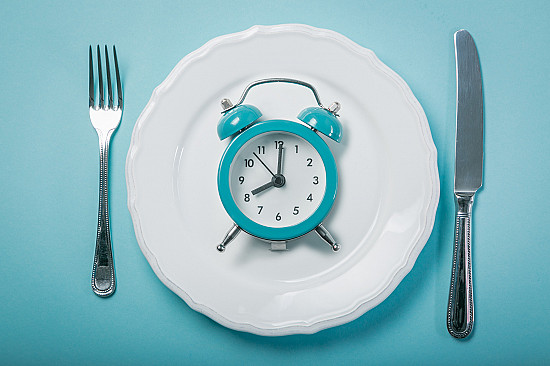 |
Intermittent fasting: The positive news continues - Harvard HealthHarvard research about Intermittent fasting ... |
 |
Intermittent Fasting for Athletes: Maximizing Performance, Recovery, and Overall HealthIntroduction Recent years have seen a significant increase in the acceptance of intermittent fasting (IF) as a viable strategy for promoting longevity, better |
 |
The Volumetrics diet — everything you need to know by SIMPLEIf you’re dieting but rarely feel full or satisfied with what you’re eating, it can feel like hunger is constantly on your tail as you try to lose weight. It’s |
 |
Intermittent Fasting and the Aging Process: A Deep Dive into Cellular Repair, Longevity, and Age-Related DiseasesIntroduction Recent years have seen a significant increase in interest in intermittent fasting (IF), a dietary strategy with many potential health advantages. |
 |
Combining Intermittent Fasting with Popular Diets: A Comprehensive Guide to Synergistic EffectsIntroduction The practice of intermittent fasting (IF) has become increasingly well-liked as a means of losing weight and enhancing health. IF involves |
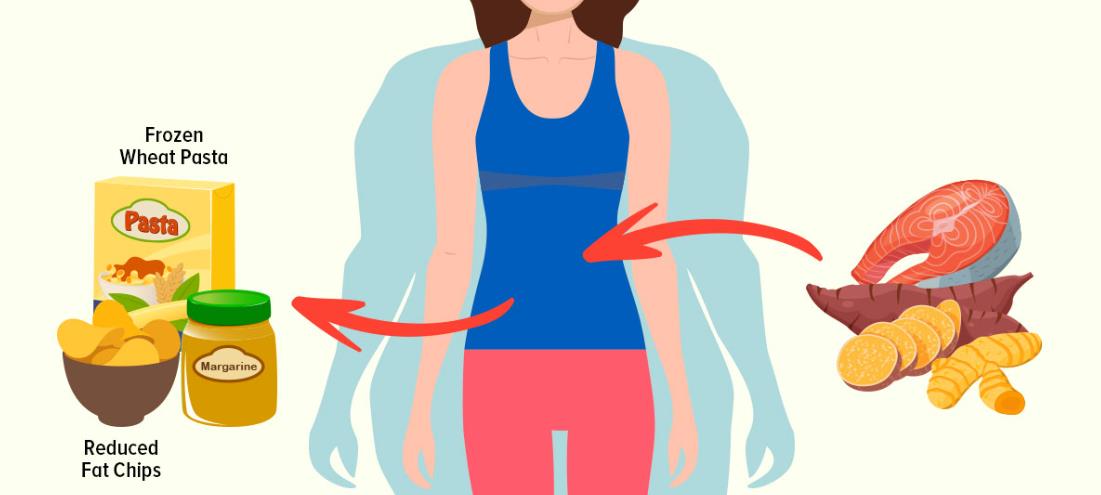 |
Six ways to do intermittent fasting: The best methodsIntermittent fasting is an increasingly popular diet option for weight loss. There are several programs, but this guide can help you find out which one is |
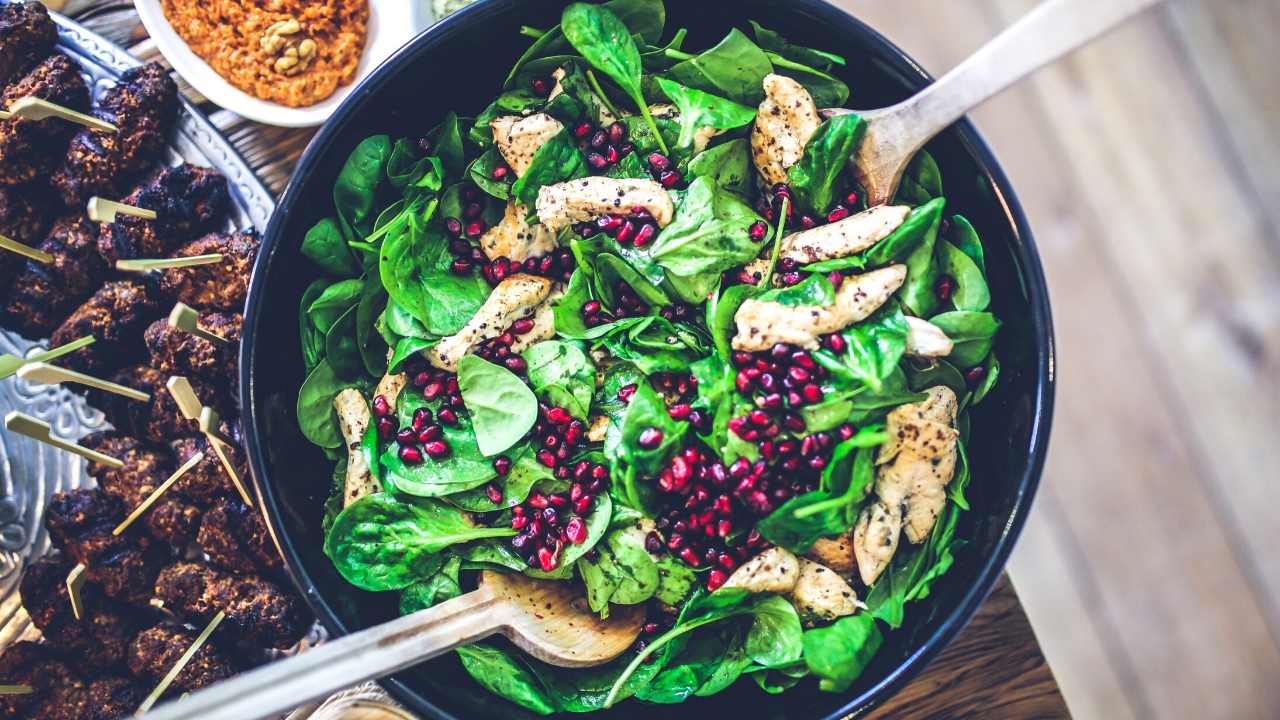 |
Does lemon water break a fast? — explained by SIMPLEWhen you’re intermittent fasting, drinking plain old water can get pretty boring, pretty fast. As a human with taste buds, you naturally want to bring a |
 |
Top Intermittent Fasting AdvantagesThere are many advantages to intermittent fasting as a strategy for weight loss. Intermittent fasting can work with any diet... |
 |
Weight Loss (Low Carbohydrate Diets)Low carb diets have often been used throughout history for weight loss. Although sometimes called a fad, low carb diets have actually more science... |
 |
The Key Factors of Weight LossWeight gain and obesity, like any medical disease, is multifactorial. This means that there are many factors that cause weight gain... |
 |
Diet A to Z: Intermittent FastingThe two-day-a-week diet: How intermittent fasting can help you lose weight and boost your health. |
 |
How Doctors Lose WeightHow do doctors lose weight? For their patients, doctors often advise following standard diets, but when trying to lose weight themselves... |
 |
Vacation Weight Loss PlanWhat is the best vacation weight loss plan? Most people [...] |
 |
Rat Model: Intermittent Fasting Normalizes High Blood Pressure Induced by Harmful Intestinal BacteriaPrevious studies have shown that a harmful combination of gut bacteria can cause high blood pressure (hypertension) in humans and other animals. Having a |
 |
Your D-I-E-T Meditation PlaylistIn my TEDx talk, I suggest recasting the noxious word “diet” into D-I-E-T — a reminder to ask ourselves “Did I Enrich Today?” One of the ways we can enrich…The |
 |
Holiday Health (Damage Control)With the holidays on us, maybe your intermittent fasting schedule isn’t as rigorous as it once was. That’s not necessarily a bad thing, because social |
 |
You Got a Zero.Zero’s not been my hero. Through grade school and college, zeroes used to be something of a monster in my mind. Teachers illustrated just how bad a zero is |
 |
Intermittent Fasting ExperiencesI took part in an energetic discussion of intermittent fasting experiences as part of the release of Women Action Takers Who Gained By Losing for which I wrote |
 |
How to Break a Fast: What to Eat After FastingHow to Break a Fast: What to Eat After Fasting Written by Stephen Anton PhD on May 15th, 2022 How to break a fast? This is an excellent question and one |
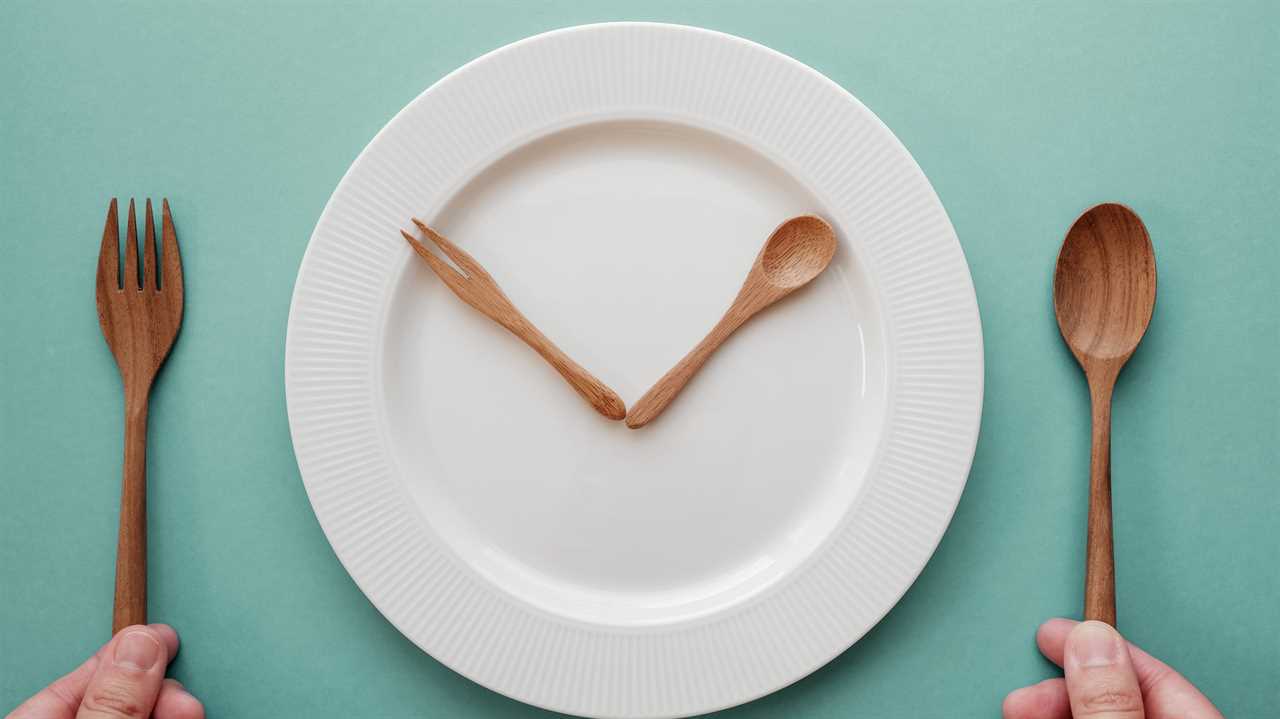 |
Intermittent fasting (IF): Your complete guide - Diet DoctorIntermittent fasting is popular, effective, and easy. This guide tells you how to get started with a successful intermittent fasting routine. |
 |
How to Believe in Yourself: 10 Tips for Becoming Your Best SelfHow to Believe in Yourself: 10 Tips for Becoming Your Best Self Guest Post by William Anton PhD on June 12th, 2022 William D. Anton, Ph.D is a renowned |
 |
36-Hour Fast (Monk Fast): Everything You Need to Know36-Hour Fast (Monk Fast): Everything You Need to Know Written by Stephen Anton PhD on July 5th, 2022 The 36-hour fast is a challenging fast in that it |
 |
18/6 Intermittent Fasting: Is It the Right Plan for You?18/6 Intermittent Fasting: Is It the Right Plan for You? Written by Stephen Anton PhD on November 29th, 2022 Intermittent fasting has become one of the |
 |
20/4 Intermittent Fasting: The Pros and Cons of a Longer Fast20/4 Intermittent Fasting: The Pros and Cons of a Longer Fast Written by Stephen Anton PhD on January 25th, 2023 There are so many different approaches to |
 |
5 Intermittent Fasting Methods, ReviewedIntermittent fasting comes in many shapes and forms. This article reviews its pros and cons so you can decide if it's worth a try. |

